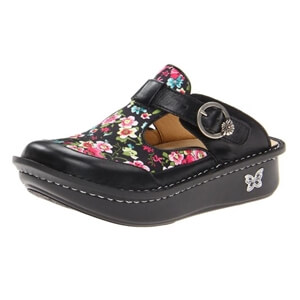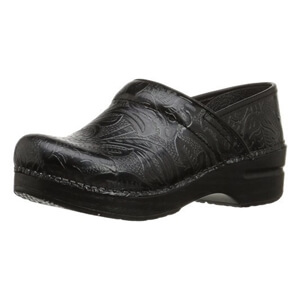While the nursing profession is renowned for its challenges and demands, it’s important to recognize that there are varying degrees of complexity and stress associated with different nursing roles. In this article, we aim to shed light on nursing positions that are considered less intense and explore the factors that contribute to their relative ease.
Whether you’re a prospective nursing student seeking to understand the diverse range of nursing careers or a seasoned nurse looking for a change of pace, join us as we delve into the world of nursing roles and identify those that are often deemed the easiest, offering valuable insights for those considering a career in healthcare.
Let’s find the Right Nursing Path!
Choosing the right nursing career path is a crucial decision that aligns with your skills, interests, and career aspirations. While the term “easiest nursing job” may vary in interpretation, it often refers to roles with less acute patient care or lower stress levels.

In the following sections, we’ll explore several nursing roles known for their relatively lower intensity, discussing the unique responsibilities and qualifications they entail.
Whether you’re a compassionate individual looking to make a difference in healthcare without high-pressure scenarios or a curious mind seeking to understand the diverse landscape of nursing, join us in this exploration as we identify nursing positions that may align with your preferences and career goals.
Demystifying “Ease” in Nursing Jobs
The quest for the “easiest” nursing job is a prevalent inquiry among those considering a career in healthcare. However, the concept of ease in nursing is intricate and multifaceted. In this comprehensive exploration, we aim to delve deeply into various nursing roles, transcending the notion of simplicity.

Our goal is to guide individuals towards a nursing path that not only aligns with their unique skills and preferences but also propels them towards fulfilling career aspirations and holistic professional growth.
Licensed Practical Nurse (LPN)
Considered by many as an accessible entry point into the nursing profession, the role of a Licensed Practical Nurse (LPN) offers a dynamic balance between responsibility and expedited training duration—typically spanning 12 to 18 months.
While the role encompasses a diverse array of responsibilities, LPNs often function under the supervision of registered nurses, providing invaluable support in a multitude of healthcare settings. The role provides a bridge for individuals eager to engage in direct patient care without the extended educational commitment required for advanced nursing positions.
Medical-Surgical Nurse
Within the expansive realm of hospital nursing, the role of a medical-surgical nurse is often perceived as a pragmatic option for those embarking on their nursing careers.

Though the environment may be characterized by its fast-paced nature and the diverse spectrum of patient cases, the broad scope of medical-surgical nursing offers a foundational platform for the development of clinical skills. This role serves as a gateway to the multifaceted landscape of healthcare, cultivating a rich experiential foundation for nurses in their professional journey.
School Nurse
For those seeking a more predictable schedule and a focus on preventative care, the role of a school nurse emerges as an enticing option. Operating within educational institutions, school nurses provide fundamental healthcare services to students, emphasizing health education and wellness promotion.
While the environment may be less acute compared to hospital settings, the impact of school nursing on student health and well-being is substantial, making it a role that combines the fulfillment of nursing with the nurturing of a supportive and educational environment.
Home Health Nurse
The niche field of home health nursing offers a distinctive blend of autonomy and patient-centered care. Home health nurses provide essential healthcare services in the comfort of patients’ homes, fostering a more personalized and intimate approach to nursing.

This setting may be perceived as less stressful than the bustling environment of a hospital, allowing nurses to build enduring connections with patients and their families. Home health nursing not only facilitates a unique patient-nurse relationship but also offers a conducive atmosphere for nurses to thrive in a more relaxed and personalized care setting.
Nursing Informatics
The convergence of healthcare and technology has given rise to emerging roles, and nursing informatics stands out as a captivating avenue for those inclined towards a more behind-the-scenes role. Nursing informatics involves the management and analysis of healthcare data, contributing to improved patient outcomes and streamlined processes.

While this role may be less hands-on in a traditional patient-care sense, it demands a unique set of skills in technology and data management. Nursing informatics professionals play a pivotal role in enhancing the efficiency of healthcare delivery, making it a field that combines nursing expertise with technological acumen.
Factors Influencing Ease in Nursing Jobs
The perceived ease of nursing jobs is influenced by a range of factors, including patient acuity, work environment, and personal preferences. In this section, we’ll explore these factors in-depth, providing a comprehensive understanding of what contributes to a nursing job being considered relatively easier.
Whether you’re a nursing student evaluating potential career paths or a nurse contemplating a shift to a less intense role, gaining insights into the factors that influence ease in nursing jobs will assist you in making informed career choices aligned with your skills and interests. Join us as we dissect the elements that play a crucial role in defining ease within the nursing profession.
Flexibility and Work-Life Balance
Ease in nursing jobs is often intricately tied to factors such as flexibility and work-life balance. Roles that offer adaptable schedules, such as school nursing or home health, may be perceived as less demanding, affording nurses the flexibility to strike a harmonious balance between their professional and personal lives.

The ability to maintain a sense of equilibrium between work commitments and personal pursuits contributes significantly to the perceived ease in nursing roles.
Training, Education, and Specialization
The perceived ease of a nursing job is intricately connected to the level of training and education required for a specific role. Entry-level roles, such as that of an LPN, may offer a quicker entry into the workforce, while advanced practice roles demand additional education and specialization.
Specializing in an area that aligns with personal interests and aptitudes not only enhances job satisfaction but also provides nurses with a sense of mastery and expertise within their chosen field.
The Importance of Passion and Alignment
Passion and alignment with one’s values play a pivotal role in the perceived ease of a nursing job. A nurse who is genuinely passionate about pediatric care may find a school nursing role to be fulfilling, even if it presents its own set of unique challenges.

Aligning personal values with the chosen nursing path contributes to a sense of ease and satisfaction, making the journey towards professional fulfillment more enriching and purpose-driven.
Conclusion
The concept of an “easy” nursing job is multifaceted and varies from person to person. It’s important to recognize that what may be easy for one nurse may not be the same for another. Factors like work environment, patient acuity, and personal preferences play significant roles in defining ease within the nursing profession.
Ultimately, choosing a nursing job that aligns with your skills, interests, and career goals is crucial for finding professional satisfaction. Whether you’re drawn to roles with predictable schedules, minimal physical demands, or data-driven responsibilities, what matters most is that your chosen path allows you to excel and make a positive impact on patient lives.
In your nursing journey, prioritize self-awareness, continuous learning, and passion for the profession. These elements will contribute to your overall satisfaction and success, regardless of whether you choose a role perceived as “easy” or one that challenges you to grow and excel. Remember, nursing is a diverse field with opportunities for everyone, and the key is to find the right fit for your unique journey.
Frequently Asked Questions
Are easy nursing jobs less impactful?
No, easy nursing jobs are not necessarily less impactful. The impact of a nursing role depends on various factors, including the quality of care provided, patient outcomes, and the nurse’s dedication to their role. Even roles considered easier can make a significant difference in patient lives and healthcare.
Do easy nursing jobs pay less?
Generally, nursing roles that are perceived as easier may pay less than roles with higher acuity and complexity. However, pay can vary widely based on factors like location, experience, and specialization. Nurses should consider their salary expectations and personal career goals when choosing a nursing job.
Can I transition to an easier nursing role?
Yes, it’s possible to transition to an easier nursing role. Nurses with experience can explore different specialties or settings that align with their preferences for a more manageable workload or predictable schedule. Transitioning often involves additional training or certification, depending on the chosen role.
Is job satisfaction linked to ease in nursing?
Job satisfaction is not solely linked to ease in nursing. It varies from person to person and depends on individual preferences and values. Some nurses find great satisfaction in challenging, high-acuity roles, while others prefer roles with less stress and physical demands. Finding job satisfaction is about aligning your role with your interests and values.
Are all easy nursing roles entry-level?
Not all easy nursing roles are entry-level. While some roles perceived as easier may be entry-level positions, such as Licensed Practical Nurses (LPNs) or School Nurses, others may require advanced education and specialization. Nurses can transition to easier roles at various points in their careers based on their experience and qualifications.
You may also like
Nurse Burnout: Recognizing, Preventing, and Addressing the Epidemic
The demanding nature of the nursing profession, coupled with external stressors, creates a breeding ground…
Alegria Classic Clog for Women Review
This is the clog that started everything. The Alegria Classic Clog for Women is available…
The Power of Compassion: How Empathetic Nursing Can Improve Patient Outcomes
Empathy is the heartbeat of compassionate nursing. The Vital Role of Empathy in Nursing Empathy…
Why do my feet hurt when I wake up?
Have you ever wondered: “Why do my feet hurt when I wake up?”. Having intense…
Dansko Women’s Professional Tooled Clog Review
An Overview over the Dansko Women’s Professional Tooled When we talk about the comfortable shoe…
The Mental Health of Nurses: Coping with Stress and Building Resilience
The Stressors in Nursing Nursing, while immensely rewarding, comes with its share of stressors that…






